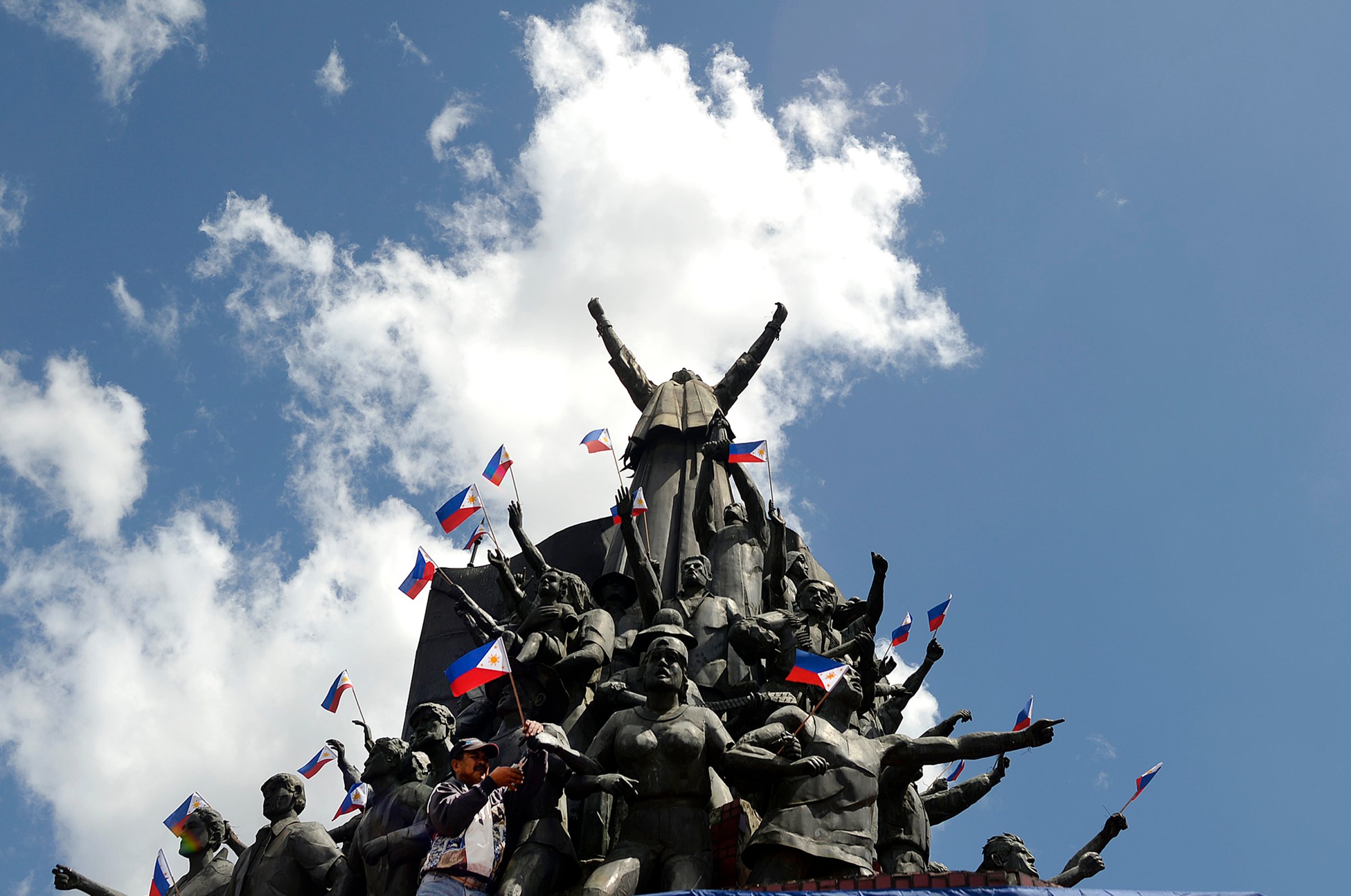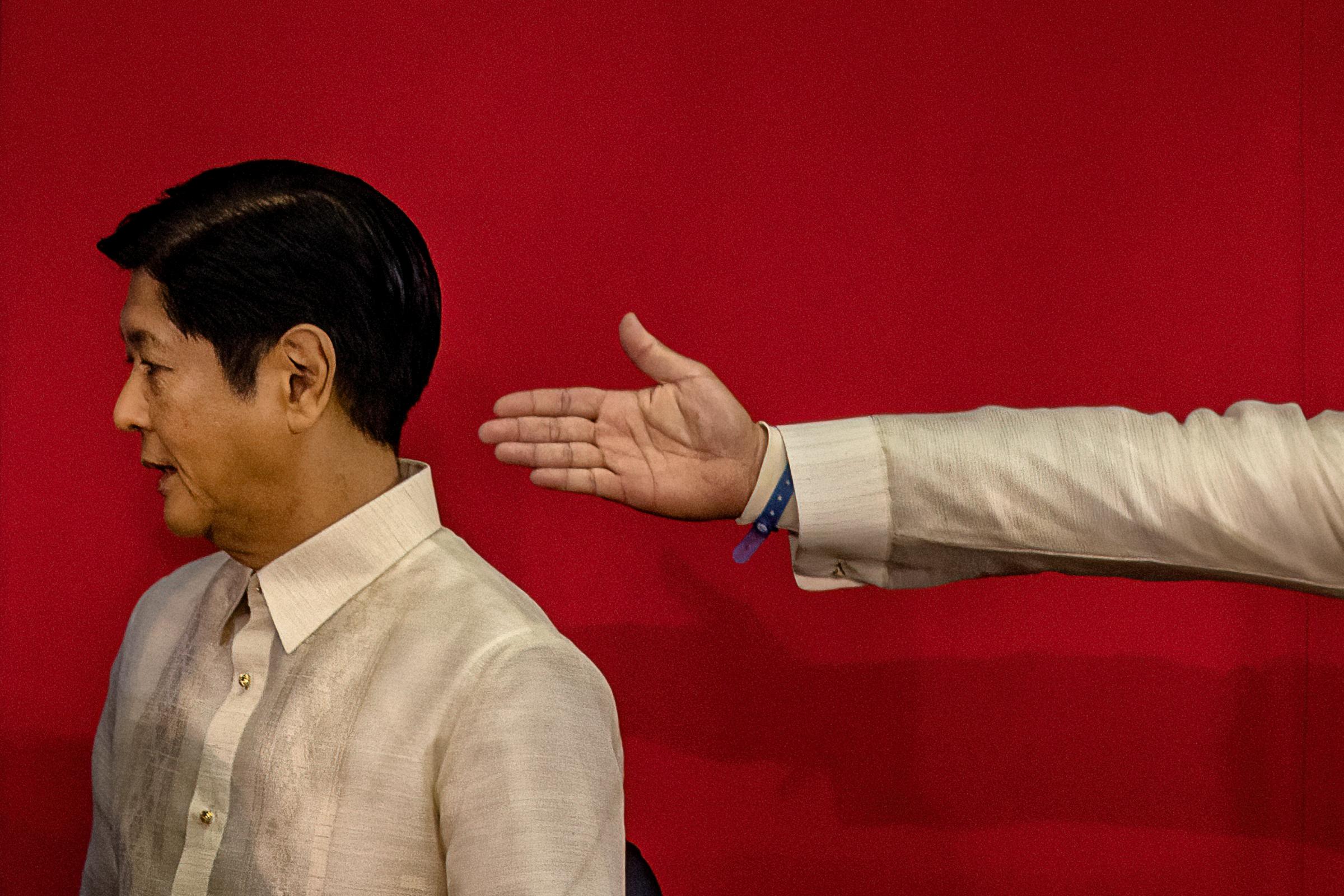
Estrella Torres was jailed for two weeks when she was barely three years old.
It was 1975, three years after then-President Ferdinand Marcos declared nationwide martial law in the Philippines—a nearly decade-long campaign in which some 70,000 people were detained, 34,000 tortured, and more than 3,000 extrajudicially killed. Torres’ father, an activist, had just been arrested for alleged sedition and rebellion. He, his wife, and their two children soon found themselves in a detention center in Pampanga, about 28 miles northeast of their home near the capital, where they slept in cold, makeshift beds beside dozens of strangers.
Now 49, Torres’ memory of that jail time is spotty, but she recounts how she and her brother would be brought to a dark and dingy cell, where their fearful bawling was used to torment their parents listening nearby.
Torres still carries resentment over that experience. “I didn’t have a happy childhood to begin with. And my father was tortured,” she tells TIME. “We were in that situation—a very sad situation—because of Marcos.”
Growing public discontent with the brutal and corrupt regime eventually crested in a popular uprising that ousted Marcos on Feb. 25, 1986, and exiled him and his family to Hawaii. The date of that “People Power Revolution”—also known as the EDSA Revolution for the Manila road on which the major protests took place, Epifanio de los Santos Avenue—has since been recognized as an annual national holiday and celebration of democracy.
The first anniversary in 1987 was described by observers as a “fiesta,” complete with fireworks, live music, and balloons and flowers filling the streets to commemorate the demonstrations that toppled a dictatorship. Over the years, public ceremonies from wreath-laying to flag-raising have reliably taken place, often with Philippine officials saying a few words in support. Last year, then-President Rodrigo Duterte urged the nation to honor those who keep the legacy of the revolution alive.
But today, for people like Torres, the suffering wrought by Marcos that prompted a democratic uprising nearly four decades ago is more at risk of being forgotten than ever before.
A new Marcos is president: the son, namesake, and splitting image of the late dictator. Marcos Jr., nicknamed “Bongbong,” wants his father’s sordid history forgotten. Since Marcos Jr., his siblings, and their mother returned to the Philippines after Marcos Sr. died of natural causes in 1989, they’ve made inroads in local and eventually national politics, culminating in Marcos Jr.’s election as president last June. Along the way, they’ve steadily refused to apologize for the sins of their family’s past and been accused by historians of denialism and revisionism when discussing the atrocities of Marcos Sr.’s regime.
“We have got to move on,” Marcos Jr. posted on Facebook in 2012 on the 40th anniversary of his father’s declaration of martial law.
For Torres, and many families like hers, that’s next to impossible. She still shudders at the sound of steel gates closing, she says. “There’s no moving on without justice.”

Feb. 25 remains a holiday on the Philippine calendar, for now at least. In a proclamation last year, Marcos Jr. listed the holidays for 2023, including the annual commemoration of the People Power Revolution (as well as the August anniversary of the 1983 assassination of Senator Benigno Aquino Jr., the elder Marcos’ political opponent whose death galvanized protests against the dictatorship).
It remains unclear how, if at all, the Marcos Jr. administration will observe such holidays inextricably linked to his father’s ouster—Malacañang (the president’s office) did not respond to multiple requests for comment for this story—but any participation would have an uncomfortable shadow cast over it.
“I don’t think it could be more ironic,” says Aries Arugay, chair of the political science department at the University of the Philippines Diliman. “This is what happens when you bring despots and their scions back to power.”
It’s not just Marcos Jr. though. Broader appreciation of the People Power holiday has been waning already, says Arugay, who points out that his research on public perceptions of Marcos Sr.’s martial law and the revolution of 1986 has revealed increasing support for tyrannical military rule and a declining positive view of the democratic uprising. He says that shift accelerated during the tenure of Marcos Jr.’s predecessor Duterte, who oversaw numerous violations of human rights, including a deadly “war on drugs” and crackdowns on dissent, and maintained high approval ratings nevertheless.
It’s a troubling trend emerging across Southeast Asia.
In the Philippines, however, a new resistance movement has taken hold among young people who never lived through the dictatorship of Marcos Sr. but are troubled by the direction the country is going, now under Marcos Jr.
“You have an entirely different generation of Filipinos—young Filipinos who believe that democracy is for them,” says Arugay.
JC Gurango is a 25-year-old among those who want the Philippines to remember its past. His grandfather was Marcos Sr.’s former media czar and chief propagandist Primitvo Mijares. In 1976, Mijares disappeared—presumed killed—after he published a tell-all book on the dictatorship and the family behind it. Mijares’ son was also abducted and his dead, mutilated body was found in a dump outside Manila.
In 2017, Gurango spearheaded the republication of his grandfather’s book in the hope that it might help prevent the Marcos family from coming back to power. It didn’t.
He’s not sure how “forgiving” the people of the Philippines are, but it’s clear, he says, that “they’re just very easy to forget.”
More Must-Reads from TIME
- Cybersecurity Experts Are Sounding the Alarm on DOGE
- Meet the 2025 Women of the Year
- The Harsh Truth About Disability Inclusion
- Why Do More Young Adults Have Cancer?
- Colman Domingo Leads With Radical Love
- How to Get Better at Doing Things Alone
- Michelle Zauner Stares Down the Darkness
Contact us at letters@time.com